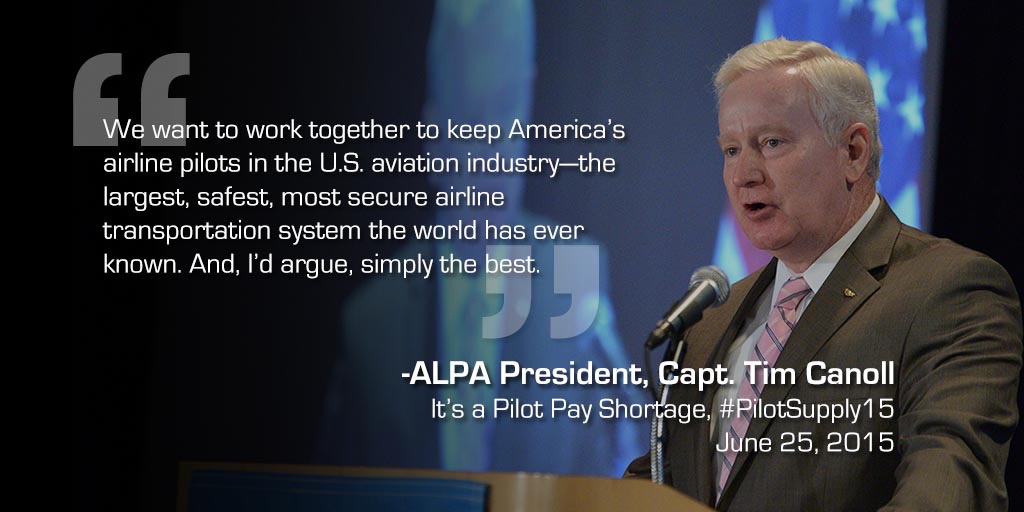Published on
August 23, 2016
Guest Commentary by Sam Pool, Envoy Master Executive Council Chairman
Becoming an airline pilot has never been a cheap or easy proposition. It requires extensive education, training, and experience. The career tack for aspiring pilots is challenging—and expensive.
Logic would dictate that those who endure and succeed would be rewarded with pay and benefits that match the investment. However, many regional airlines are not adapting––starting pilot salaries at many remain less than $30,000.
Nowhere is this failure to adapt more evident than in the so-called “pilot shortage.” To be clear, there is no shortage of individuals qualified or interested in becoming qualified to fly airliners. However, there is absolutely a shortage of individuals willing to assume the responsibilities of an airline pilot for the compensation currently being offered. Compelling evidence indicates that this shortage can be mitigated––those airlines that offer higher compensation are having no problems finding pilots to fly their planes.
Published on
March 18, 2016
When it comes to discussing solutions to ensure that North America has the most qualified, highly-trained, professional pilots for our industry’s continued success, ALPA is leading the charge.
While some in industry and media have worked to manufacture claims that a looming pilot shortage is a reason to roll back vital safety provisions and discontinue service on unprofitable routes, ALPA has been fighting back on those assertions and shining a light on the real issue – that a lack of career growth and extremely low first-year salaries at some airlines are causing many to rethink a career as an airline pilot.
Published on
February 29, 2016
In case you missed it, last week ALPA released two new fact sheets revealing that a credible analysis of the data contradicts any claim that a pilot shortage is causing airlines to stop serving smaller communities and discredits calls by some airlines to weaken pilot qualification and training rules that make air transportation safer for passengers and air cargo shippers.
“Claims that a pilot shortage is behind any changes in rural community air service are easily dismissed when you look at the facts of what’s actually happening at smaller airports,” said Capt. Paul Ryder, ALPA’s national resource coordinator. “Airlines make decisions about where they fly based on what’s best for their bottom line—namely how many passengers will buy tickets and how much they’re willing to pay”.
ALPA’s fact sheet shows that many factors influence a route’s profitability, but it is primarily based on passenger travel decisions.
Published on
June 25, 2015
ALPA has a vested interest in growing competitive airlines that attract the best and brightest pilots. We firmly believe we should do everything within our power to remain the best in the world, because that is a ranking we can’t afford to lose. Unfortunately, there are challenges in our industry that threaten the future of our profession.




